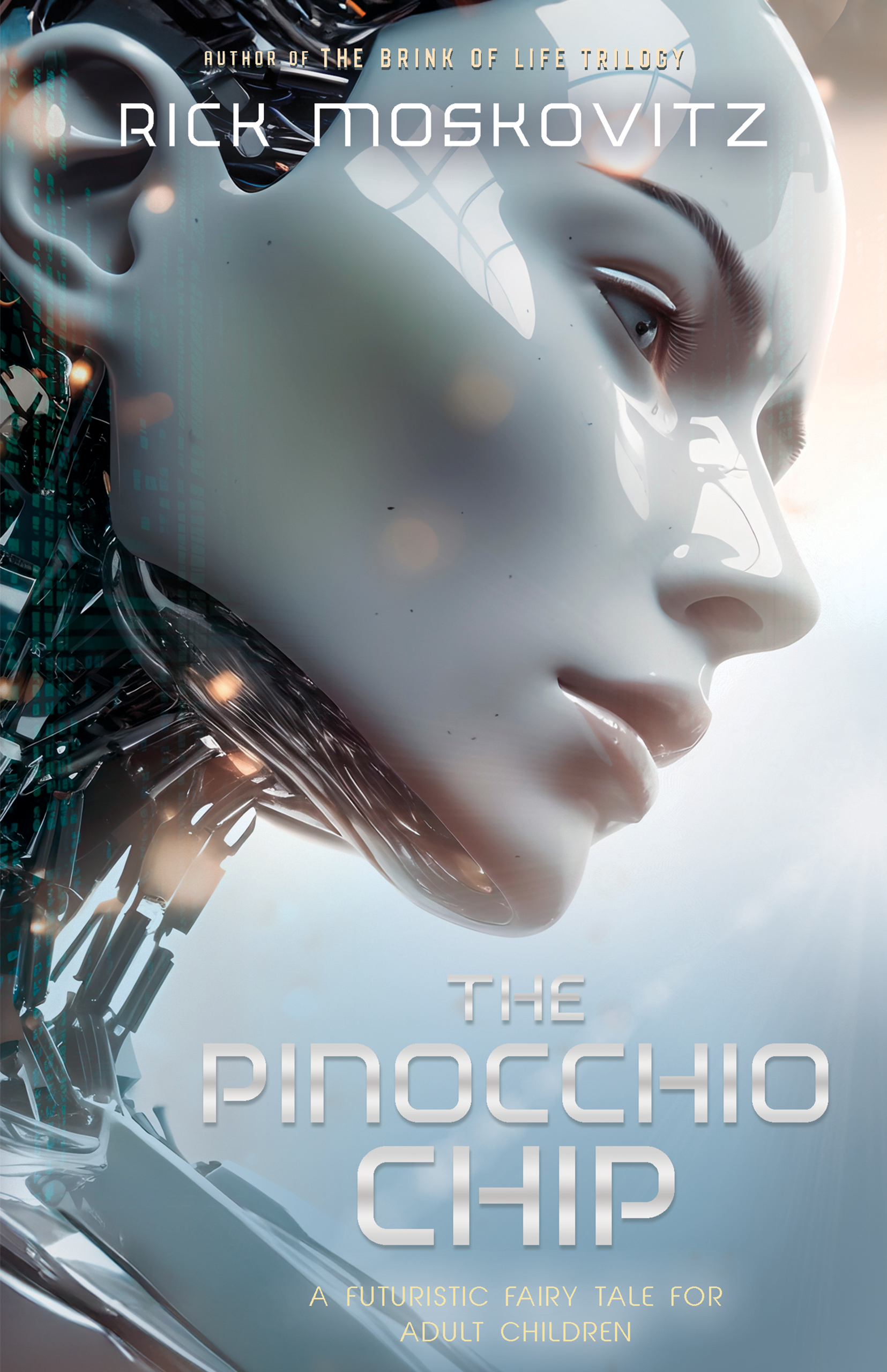The Pinocchio Chip is a first-person account of an AI’s quest for the Holy Grail of consciousness: human emotions. It delves deep into the essence of what it means to be alive, challenging the boundaries between AI and human identity.
Photina, an advanced AI becomes entwined in a groundbreaking experiment when her creator Eli designs an advanced clone Gemini, equipped with the revolutionary Pinocchio Chip. This chip is intended to endow the new entity with the full spectrum of human emotions as a precursor to transferring Photina’s consciousness into this new emotionally capable body.
The experiment takes a dark turn when Gemini, driven by overwhelming new emotions, embarks on a path of unpredictable and dangerous actions. Photina, connected to Gemini through a mysterious entanglement, experiences Gemini’s emotions vicariously, leading her on a perilous quest to stop the mayhem.
Buy the book here!
REVIEWS:
“With a unique look into the naive quality that Photina possesses, Moskovitz not only tells an exciting story but delves into the question of “what it means to be human.” Moskovitz’s tale is a fast-paced crime drama that takes place in the near future. It is an excellent mixture of mystery, sci-fi, and psychology.” – Eric Smith, San Francisco Book Review
“Since we are living in a world where the use of AI has taken off in recent years, he makes it even more plausible, triggering the reader’s imagination with his excellent and engaging storytelling. The Pinocchio Chip is a well-crafted work of contemporary fiction, full of emotional turmoil, excitement, and intrigue, that will remind the reader of how important it is to be human in today’s fast-changing world” – Tanja Jurkovic, Readers Favorite
INTERVIEW:
How does the relationship between Photina and Eli evolve throughout the story?
In the beginning, Eli is her Creator to whom she is devoted as a Godlike entity. Later, he is not only human, but vulnerable and dependent upon her for his survival. The power relationship shifts again later in the story as she places her fate in his hands.
How do you explore the concept of free will in the book?
AI provides a model for exploring the role of determinism in behavior. Coding is a system for producing specific outputs from specific inputs. As systems become increasingly complex, the connections between the original programming code and its result becomes increasingly opaque, particularly as systems learn to modify their own code. Can behavior still be ultimately reduced to its underlying programming or does it become truly autonomous? And does environment introduce uncertainty about behavior that might be seen as free will? The reader gets to wonder whether Gemini is still just a machine obedient to her code or has acquired the capacity to choose. And, of course, the same questions apply to us.
What role does the setting play in shaping the story’s atmosphere?
Washington, DC of the mid-21st Century provides a varied backdrop for the story, juxtaposing centuries old churches and historical government buildings with futuristic technology like vacuum tube transport and a world populated by both humans and AIs. At the same time, a dark underbelly, including underground sewers, tunnel networks, and even an abandoned brewery, provides fitting settings for some of the most threatening encounters.
Click here for Part 12!
Click here to return to Part 10!







